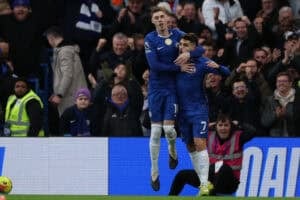DR Congo's opposition was on Tuesday set to hold an authorised mass rally for the first time in nearly two years to mark the 28th anniversary of multi-party politics in the country, as tensions grow over veteran President Joseph Kabila's refusal to quit despite the expiry of his mandate.

The government, in a major climbdown, has allowed the main opposition Union for Democracy and Social Progress (UDPS) party to hold the public event in Kinshasa. The last time it did so was in September 2016.
Elections for the Democratic Republic of Congo’s head of state are due to take place on December 23 after two postponements that have stoked fears the sprawling, volatile state could spiral into war.
Kabila has been in power since 2001 and should have stepped down at the end of 2016 after he reached his two-term constitutional limit but a constitutional clause has allowed him to remain in office until his successor is elected.
In addition to a deepening political crisis, the DR Congo is struggling with armed conflict in its vast, lawless east, which is under the sway of multiple rebel groups.
UDPS leader Felix Tshisekedi, son of former premier Etienne Tshisekedi who died in Brussels in February last year, has compared Kabila to former dictator Mobutu Sese Seko.
Mobutu wielded nearly absolute control in the sprawling central African country after taking power in 1965. After 1970 every citizen of Zaire, as he had renamed the country, was required to be a member of the ruling party, the Popular Movement for the Revolution.
On this day in 1990, he lifted a 20-year ban on opposition parties after growing pressure for social and political change.
Seven years later, he was ousted by Laurent-Desire Kabila, the father of the current president.
– Escalating tensions –
Tshisekedi on Tuesday will unveil the broad outlines of his party’s electoral campaign, local media said.
Late last year he called for a campaign of civil disobedience but that has been severely hampered with opposition rallies banned since September 2016.
Earlier this year Tshisekedi backed three anti-regime marches called by the influential Catholic church.
Scores have been killed in a brutal government crackdown on the opposition
Escalating tension over Kabila’s future has fed protests leading to a security crackdown that has claimed dozens of lives. Many have been killed near the headquarters of Tshisekedi’s party.
Meanwhile, Lumuna Sando, a former spokesman for Mobutu and government heavyweight, said “nothing much has changed” since Mobutu lifted the ban on the opposition.
“There are similarities in the debate, the behaviour and the positions taken by Congolese politicians,” he said.






